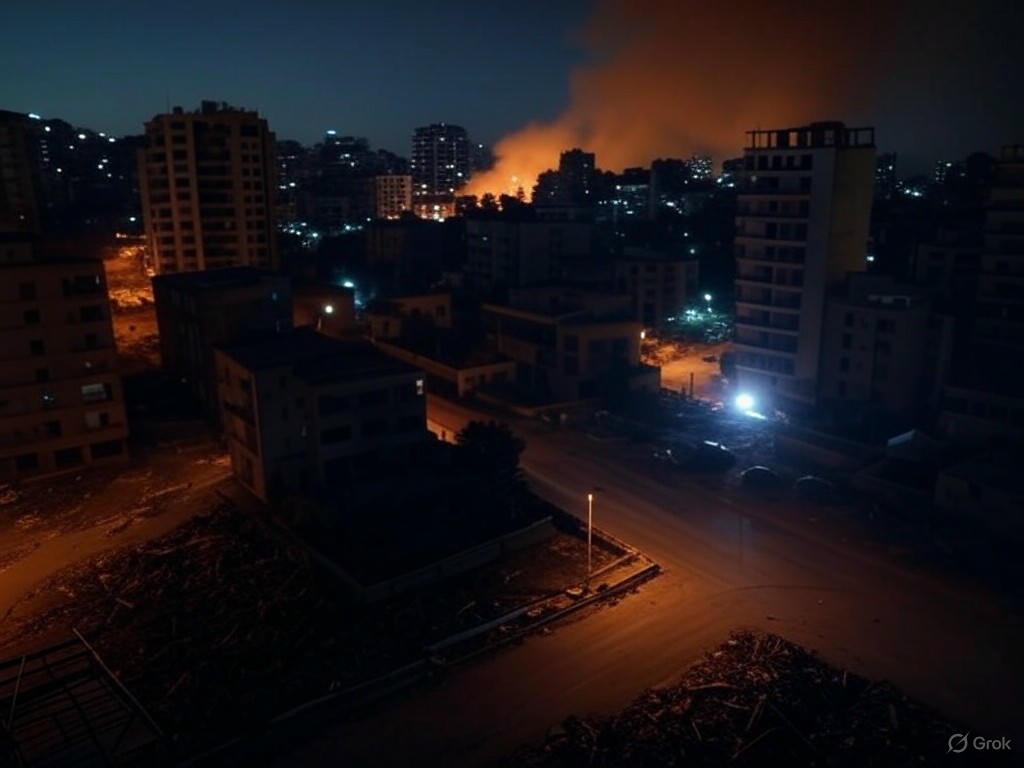In a troubling escalation of regional tensions, Israel has carried out a series of military strikes on Beirut’s southern suburbs and areas in southern Lebanon. Reports confirm that this marks the fourth instance of such attacks on the Lebanese capital since a fragile ceasefire was brokered with Hezbollah in November of last year. The recurring violence has reignited fears of a broader conflict in a region already scarred by decades of unrest.
The latest wave of strikes targeted densely populated zones in Beirut’s southern districts, areas known to be strongholds of Hezbollah, the powerful Lebanese militant group and political faction. While specific details on casualties and damage remain unclear, local sources describe scenes of chaos, with plumes of smoke rising over the city and emergency services scrambling to respond. In southern Lebanon, a region long considered a flashpoint for cross-border skirmishes, Israeli forces also launched operations, further intensifying the atmosphere of uncertainty. The timing of these attacks, coming just months after a tentative peace agreement, raises questions about the durability of diplomatic efforts to stabilize the region.
Analysts suggest that Israel’s actions may be driven by concerns over Hezbollah’s rearmament or perceived threats along its northern border. The group, backed by Iran, has been a longstanding adversary of Israel, and past conflicts have left deep wounds on both sides. However, these strikes risk derailing the fragile balance of power that the ceasefire was meant to preserve. Lebanese civilians, many of whom have endured years of hardship due to political instability and economic collapse, now face renewed fears of displacement and loss. Social media is abuzz with accounts from residents describing the terror of sudden airstrikes and the struggle to find safety amidst the turmoil.
The international community has been quick to react, with calls for restraint echoing from various quarters. Diplomatic channels are reportedly being activated to prevent a full-scale escalation, but the path forward remains uncertain. Neighboring countries and global powers alike are watching closely, aware that any misstep could ignite a wider conflict with devastating consequences. For many Lebanese, the strikes are a grim reminder of the 2006 war between Israel and Hezbollah, a conflict that left thousands dead and infrastructure in ruins.
As the dust settles over Beirut and southern Lebanon, the pressing need for dialogue and de-escalation cannot be overstated. Both sides must weigh the cost of continued aggression against the fleeting hope of peace. For now, the people of Lebanon brace themselves for what may come next, caught in a cycle of violence that shows little sign of abating. The world watches, hoping that cooler heads will prevail before the situation spirals beyond control. Only time will tell whether this latest chapter of hostility will end in tragedy or a renewed push for lasting resolution.
